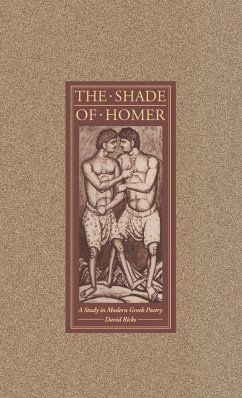
Narration and Description in the French Realist Novel
The Temporality of Lying and Forgetting

PAYBACK Punkte
62 °P sammeln!
This new study of the nineteenth-century French realist novel focuses on the difference, and fundamental incompatibility, between the narrative and the descriptive modes of discourse. James Reid shows how the major novelists, Balzac, Flaubert, and Zola, like some of their twentieth-century successors, grappled with their belief or fear that their stories lied in their representation of time and history, or that their descriptions forgot (rather than remembered) the reality of their socio-historical world. He questions recent critical approaches which have tended to reduce the realist novel to ...
This new study of the nineteenth-century French realist novel focuses on the difference, and fundamental incompatibility, between the narrative and the descriptive modes of discourse. James Reid shows how the major novelists, Balzac, Flaubert, and Zola, like some of their twentieth-century successors, grappled with their belief or fear that their stories lied in their representation of time and history, or that their descriptions forgot (rather than remembered) the reality of their socio-historical world. He questions recent critical approaches which have tended to reduce the realist novel to individual or historically determined narratives or speech acts. He demonstrates instead the writers' use of irony and allegory in struggling against the deceitfulness of their own texts.
Table of contents:
1. Balzac: The Power of Lying and the Irony of Power; 2. Descriptive and Narrative Self-Deception: Flaubert's Allegory of Parody; 3. Forgetting and Beyond: Zola and Allegory; Conclusion.
This new study of the nineteenth-century French realist novel focuses on the fundamental incompatibility between the narrative and the descriptive modes of discourse. It shows how the major novelists Balzac, Flaubert, and Zola, like some of their twentieth-century successors, grappled with their belief or fear that their stories lied in their representation of time and history, or that their descriptions forgot the reality of their socio-historical world.
This book demonstrates instead the writers' use of irony and allegory in struggling against the deceitfulness of their own texts.
Table of contents:
1. Balzac: The Power of Lying and the Irony of Power; 2. Descriptive and Narrative Self-Deception: Flaubert's Allegory of Parody; 3. Forgetting and Beyond: Zola and Allegory; Conclusion.
This new study of the nineteenth-century French realist novel focuses on the fundamental incompatibility between the narrative and the descriptive modes of discourse. It shows how the major novelists Balzac, Flaubert, and Zola, like some of their twentieth-century successors, grappled with their belief or fear that their stories lied in their representation of time and history, or that their descriptions forgot the reality of their socio-historical world.
This book demonstrates instead the writers' use of irony and allegory in struggling against the deceitfulness of their own texts.














